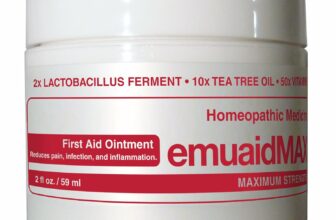
Seeking the Right Medical Advice for Toenail Fungus
Dealing with toenail fungus is an ordeal that millions experience, but many remain uncertain about which medical professional to turn to. So, when confronted with the critical question: “What kind of doctor treats toenail fungus?”, you’re not alone in seeking the answer. This article aims to guide you through the specialized world of medical professionals and their roles in addressing toenail fungus. We will delve deep into understanding the condition and the variety of treatments available, from traditional medical procedures to other effective options that won’t break the bank.
Before we dive in, it’s worth noting that while consulting a specialist is always recommended for comprehensive treatment, there are alternative, not-so-invasive solutions available.
One such effective product to consider as part of your over the counter toenail fungus treatment plan is the Swissklip Fungus Treatment (another option could be the Pure Health Fungus Eliminator and the Metanail, which has garnered attention for its efficacy. While we will explore a range of treatments and specialists in this article, always remember that the right medical advice is paramount in your journey to healthier toenails.
Primary Care Physicians (PCPs) and Toenail Fungus

When pondering the question, “what kind of doctor treats toenail fungus?”, many might be surprised to learn that the journey often starts at the office of their primary care physician (PCP). PCPs, familiar with a wide range of health conditions, are typically the first line of defense against toenail fungus.
Role of PCPs in Diagnosing Toenail Fungus
Your primary care physician can perform an initial examination of the affected toenail and provide an assessment. They might take nail clippings or scrape debris from under the nail to send to a lab for testing. This ensures that the issue is indeed toenail fungus and not a similar-looking condition, like psoriasis or yellow nail syndrome.
Treatment Recommendations by PCPs
Based on the severity and type of the fungal infection, PCPs can prescribe topical or oral antifungal medications. Topical solutions are applied directly to the nail, while oral medications target the fungus from within.
However, sometimes, the side effects or prolonged duration of oral antifungal treatments can be a cause of concern for many individuals. For those seeking alternative treatments, PCPs might suggest over-the-counter (OTC) options or home remedies known to show efficacy against toenail fungus.
When to Seek a Specialist
While primary care physicians are well-equipped to diagnose and offer initial treatments for toenail fungus, they might refer you to a specialist if the infection is severe, recurrent, or not responding to standard treatments. This brings us to the core question of “what kind of doctor treats toenail fungus?” when a specialist’s intervention is deemed necessary. In the sections ahead, we’ll explore the roles of dermatologists and podiatrists in the treatment journey of toenail fungus.
Podiatrists: The Foot and Ankle Specialists

When one thinks about the question, “what kind of doctor treats toenail fungus?”, podiatrists often come to the forefront. Podiatrists are medical professionals who specialize in the diagnosis, treatment, and prevention of conditions related to the foot and ankle. Given their specialized knowledge, they are adept at handling various foot-related ailments, including toenail fungus.
Expertise of Podiatrists in Toenail Fungus Treatment
A podiatrist can provide a more specialized approach to diagnosing and treating toenail fungus. They have tools and techniques at their disposal that can help in determining the specific type of fungus causing the infection. Moreover, their deep understanding of foot anatomy allows them to address the condition more holistically, considering other potential foot issues that might be contributing to or complicating the fungal infection.
Advanced Treatments Offered by Podiatrists
Beyond the standard antifungal medications, podiatrists can offer more advanced treatments for stubborn or severe fungal infections. These can range from laser treatments, which target the fungus directly beneath the nail, to minor surgical procedures that remove the infected part of the nail.
However, not everyone is ready to dive straight into these advanced treatments, either due to their invasive nature, cost, or potential side effects. Before taking that route, many seek alternative remedies and products to tackle their toenail fungus.
The Importance of a Tailored Approach
While podiatrists have a wealth of knowledge and tools to combat toenail fungus, it’s essential to understand that every individual’s case is unique. What might work wonders for one person might not have the same efficacy for another.
Therefore, collaboration between the patient and podiatrist is vital in determining the best course of action, whether it’s a prescription, a procedure, or an over-the-counter remedy.
In our quest to understand “what kind of doctor treats toenail fungus?”, the journey now takes us to another specialized field: dermatology. In the next section, we’ll delve into the role of dermatologists in this context.
Dermatologists: Skin and Nail Experts

Beyond the realm of feet and ankles, when pondering the question “what kind of doctor treats toenail fungus?”, dermatologists stand out as another invaluable resource. Specializing in conditions of the skin, hair, and nails, dermatologists possess a broad knowledge base that is particularly relevant when addressing fungal infections of the toenail.
Role of Dermatologists in Toenail Fungus Treatment
Dermatology bridges the gap between complex medical conditions and aesthetic concerns. When it comes to toenail fungus, a dermatologist will not only address the medical aspect but will also consider the cosmetic repercussions of the infection. This makes them adept at devising treatments that are both effective and sensitive to the patient’s aesthetic desires.
Given their expertise in skin and nail conditions, dermatologists can offer insights into the nature of the fungal infection, providing a detailed diagnosis and understanding of the fungus type. This comprehensive approach often leads to a more tailored treatment plan, aimed at both eradicating the fungus and restoring the nail’s appearance.
Why a Dermatologist Might Be Your Best Bet
While podiatrists focus primarily on the foot’s anatomy and related conditions, dermatologists offer a broader perspective, considering the overall health of the skin and nails. This can be particularly useful for those who have recurring fungal infections or other underlying skin conditions contributing to the problem.
However, before diving into intensive treatments, many patients explore alternative, non-invasive solutions. As such, it’s not uncommon for dermatologists to suggest trying out effective over-the-counter options before proceeding with more aggressive interventions.
Infectious Disease Specialists

Another key figure that emerges when seeking an answer to “what kind of doctor treats toenail fungus?” is the infectious disease specialist. These medical experts dedicate their careers to studying and treating infections caused by various pathogens, including bacteria, viruses, and fungi.
Role of Infectious Disease Specialists in Toenail Fungus Treatment
Given their specialized training in infectious diseases, these professionals offer a unique understanding of toenail fungal infections. While toenail fungus might seem relatively straightforward, for some patients—particularly those with compromised immune systems—the infection can be more tenacious and complex.
Infectious disease specialists are equipped to handle these intricate cases. They can perform detailed assessments, including advanced laboratory tests, to precisely identify the fungus type and recommend appropriate treatments. Their depth of knowledge ensures that even the most stubborn fungal infections are tackled effectively.
Why Consider an Infectious Disease Specialist?
Most cases of toenail fungus are handled efficiently by podiatrists, dermatologists, or primary care physicians. However, if someone finds their condition recurrent or resistant to standard treatments, it’s prudent to consider consulting with an infectious disease specialist. This is especially true for those with other health conditions that might complicate the toenail fungus scenario.
While these specialists possess the tools and knowledge to recommend a variety of treatments, they also understand the value of exploring non-invasive options like nail growth oils, especially in the early stages. For many patients, starting with a proven over-the-counter toenail fungus treatment, can be a wise decision. Its tea tree oil active ingredient has been renowned for its antifungal properties, making it an effective preliminary or supplementary treatment.
When to Seek Treatment

For many individuals, realizing they might be suffering from toenail fungus brings forth a pressing question: “What kind of doctor treats toenail fungus and when should I see them?” Addressing toenail fungus promptly can make the difference between a short-term inconvenience and a long-term health concern.
Signs That Indicate the Need for Medical Attention
Discoloration: The most evident sign is a change in the toenail color, often turning yellow, brown, or white.
Brittleness: The nails become fragile, easily breaking, cracking, or chipping.
Thickening: Infected nails might thicken over time, making them harder to trim.
Distorted shape: The nail may start growing irregularly, curling or bulging at places.
Unpleasant odor: Foul-smelling feet can be a red flag for fungal infections.
Pain: While toenail fungus can sometimes be painless, if there’s discomfort or pain when walking, it’s a clear sign that medical intervention is required.
Taking Immediate Actions
Before rushing to the nearest clinic, there are steps you can take at home. If the infection is in its early stages, non-invasive treatments can offer relief. Known for its antifungal properties, this product can be a first line of defense against the fungi threatening your toenails.
When It’s Time to Consult a Doctor
Should the symptoms persist or worsen even after trying initial treatments, it’s crucial to consult a professional. Remembering the question, “What kind of doctor treats toenail fungus?”, can guide you towards the right expert, whether it’s a dermatologist, a podiatrist, or, in more severe cases, an infectious disease specialist. They will provide a comprehensive diagnosis and suggest suitable treatments.
Over-the-Counter vs. Prescription Treatments

Upon recognizing toenail fungus, many individuals grapple with the decision of which route to take for treatment. In the quest to find an answer to the pressing question, “What kind of doctor treats toenail fungus?”, it’s also crucial to understand the difference between over-the-counter (OTC) remedies and prescription treatments.
Over-the-Counter (OTC) Remedies
Accessibility: One of the primary benefits of the best OTC toenail fungus solutions is that they are readily available at local drugstores or online, allowing you to begin treatment immediately.
Cost-effective: Generally, OTC treatments tend to be more affordable than prescription options. This accessibility can be beneficial for those looking for initial interventions without breaking the bank.
Ease of Use: Most OTC treatments come with straightforward instructions, enabling users to apply them without any specialized knowledge.
Swissklip Fungus Treatment: As an example of an effective OTC solution, it provides an alternative route for those not yet requiring or wishing to avoid prescription medicines.
Prescription Treatments

Stronger Potency: Prescription treatments, being more potent, can handle severe or persistent cases that might not respond to OTC solutions.
Specialized Formulation: They are often tailor-made to address specific types of fungal infections, ensuring targeted and effective treatment.
Medical Guidance: Prescription treatments come with the added advantage of regular monitoring by a healthcare professional. This oversight ensures that the infection is on the decline and helps identify any potential side effects early on.
Potential Side Effects: Given their strength, prescription medications might have side effects, making it imperative to follow the recommended dosages and schedules strictly.
Making the Right Choice:
For those in the early stages of toenail fungus or those who have mild symptoms, OTC solutions can be a prudent starting point. However, if the infection is advanced, causing significant discomfort, or if OTC treatments don’t yield results, it’s essential to consult a professional. Remembering the question, “What kind of doctor treats toenail fungus?” can help guide the decision-making process.
Final Thoughts on Choosing the Right Treatment Path

Toenail fungus, while common, can be an irritating and persistent condition that affects many. As we’ve navigated through the ins and outs of the pressing question – “What kind of doctor treats toenail fungus?” – it’s evident that there are various specialists equipped to address this concern. Whether you opt for a primary care physician, podiatrist, dermatologist, or even an infectious disease specialist, the main goal is to get effective treatment promptly.
However, not every case of toenail fungus requires an immediate visit to a specialist. Before diving into expensive or invasive treatments, considering over-the-counter (OTC) remedies is a wise decision for many. These treatments, especially reliable ones, provide an accessible, cost-effective avenue for those in the early stages of the condition or those with mild symptoms.
In summary, being informed is half the battle. Recognizing the signs of toenail fungus, understanding when to seek professional guidance, and knowing the available treatment options can make all the difference. Whether you’re leaning towards OTC solutions or contemplating a visit to the doctor who treats toenail fungus, being proactive and addressing the condition head-on will set you on the right path to healthy toenails.
Thank you for joining us on this journey of understanding toenail fungus and its treatments better. Remember, your health is paramount; always make informed decisions that best suit your individual needs.
FAQ Section
What kind of doctor treats toenail fungus primarily?
Most often, podiatrists and dermatologists are the primary specialists that patients turn to when they have toenail fungus. However, primary care physicians and infectious disease specialists can also provide guidance and treatments for milder cases or more complex situations respectively.
How do I know if I have toenail fungus?
Common symptoms include yellowed or thickened nails, brittleness, separation of the nail from the nail bed, and sometimes pain. If you suspect you have toenail fungus, consider consulting with a specialist or opting for a reputable over-the-counter remedy.
Are over-the-counter treatments for toenail fungus effective?
Yes, many over-the-counter treatments have been found effective, especially if the toenail fungus is in its early stages.
How long does it take to see results with over-the-counter treatments?
The duration varies based on the severity of the infection and the specific product used. For some, it might be a matter of weeks, while others might need a few months. Regular application and following the product guidelines are crucial.
If OTC treatments don’t work, what’s my next step?
If over-the-counter solutions don’t provide the desired results, it’s advisable to seek a consultation from a doctor who treats toenail fungus. They can assess the situation and provide prescription treatments or other interventions.
Can toenail fungus spread to other parts of the body?
Yes, it can spread to other toenails, fingernails, and even the skin. It’s essential to address toenail fungus promptly to prevent such spreading.
Are there preventive measures for toenail fungus?
Absolutely. Keeping your feet dry and clean, avoiding walking barefoot in communal areas, wearing breathable footwear, and changing socks frequently are some of the preventive steps to reduce the risk of toenail fungus.
In conclusion, toenail fungus is a treatable condition. While it’s crucial to know what kind of doctor treats toenail fungus, it’s equally essential to be aware of the effective over-the-counter solutions available. Always approach any health concern with the right information and timely action.






